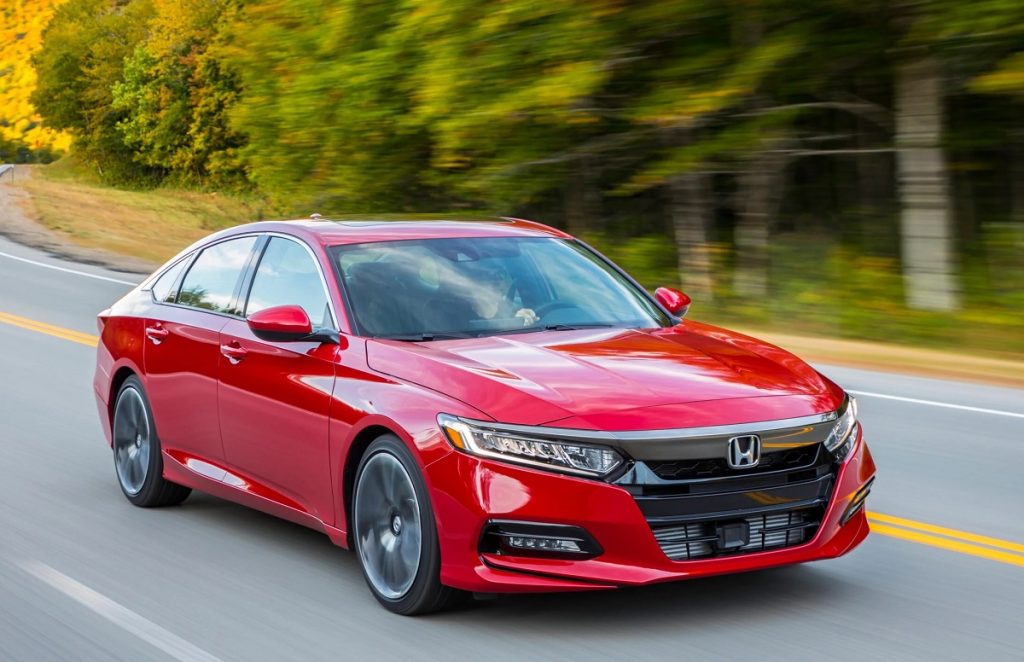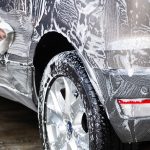In the expansive world of automotive care, where every detail matters, the use of isopropyl alcohol has become a topic of contemplation for car enthusiasts and owners alike. While some praise its efficacy in cleaning and disinfecting, a looming concern persists – does isopropyl alcohol damage car paint? Let’s embark on a comprehensive journey through the intricacies of this question, unraveling the mysteries surrounding the potential impact on your cherished vehicle’s finish.
Understanding the Dynamics: Isopropyl Alcohol and Car Paint Compatibility
1. Solvent Properties and Paint Interaction
Isopropyl alcohol is celebrated for its solvent properties, making it a go-to solution for a myriad of cleaning tasks. However, when it comes to automotive paint, these solvent properties raise questions about potential damage. The ability of isopropyl alcohol to dissolve substances might extend to stripping away the protective layers of car paint, leaving it exposed to the elements.
2. The Perils of Fading and Discoloration
One of the primary concerns surrounding the use of isopropyl alcohol on car paint is the potential for fading and discoloration. As the alcohol interacts with the polymers in the paint, it can lead to alterations in the color and appearance of the vehicle over time.
Dispelling Myths and Confirming Realities: Separating Fact from Fiction
3. Myth: Isopropyl Alcohol Preserves Shine
Contrary to a common misconception, relying on isopropyl alcohol as a quick fix for a glossy finish might not be the best approach. While it can provide a temporary shine, the long-term consequences on the health of your car’s paint may be compromised.
4. Fact: Dilution as a Mitigation Strategy
Amidst concerns about potential damage, it’s crucial to acknowledge that the proper dilution of isopropyl alcohol can significantly mitigate risks. Diluting it with water in the right proportions ensures a safer application on car paint, reducing the likelihood of adverse effects.
Navigating the Terrain: Best Practices for Safeguarding Your Car’s Finish
5. Embrace Regular Washing and Waxing Habits
Preserving the luster of your car involves a commitment to regular washing and waxing. This not only keeps the paint looking pristine but also acts as a protective barrier against external contaminants.
6. Choosing Wisely: Safe Cleaning Alternatives
In the quest for cleanliness, it’s essential to explore alternative cleaning solutions specifically designed for automotive surfaces. Opting for products labeled as safe for car paint minimizes the risks associated with aggressive cleaning agents like undiluted isopropyl alcohol.
A DIY Approach to Paint Protection: A Holistic Strategy
7. DIY Paint Sealants: A Shield of Protection
For an added layer of protection, consider applying a DIY paint sealant. This serves as a formidable shield against contaminants, reducing the susceptibility of your car’s paint to potential damage from isopropyl alcohol or other cleaning agents.
8. Prioritize Spot Testing for Prudent Application
Before incorporating isopropyl alcohol into your regular cleaning routine, a spot test on a small, inconspicuous area is a prudent step. This precautionary measure allows you to assess its impact on your specific paint type and make informed decisions about its usage. (See Also: Can You Wax Chrome Exhaust? Tips for Polishing and Protecting Your Vehicle’s Shine)
Expert Tips: Shielding Your Car Paint from Isopropyl Alcohol Fallout
As we navigate the delicate terrain of car care, ensuring the longevity and brilliance of your vehicle’s paint becomes a top priority. In the realm of using isopropyl alcohol, expert tips can be invaluable in safeguarding your car’s finish. Let’s delve into some pro advice to shield your prized possession from the potential fallout of isopropyl alcohol usage.
1. Mindful Dilution: The Golden Ratio
When opting for isopropyl alcohol as a cleaning solution, the golden rule is in the dilution. Mix it with water in precise proportions to strike the right balance between effective cleaning and preserving your car’s paint.
2. Gentle Application: Patience is a Virtue
Applying isopropyl alcohol with patience and a gentle touch goes a long way. Avoid aggressive scrubbing, as it can exacerbate the risk of damaging the paint. A soft cloth or sponge and a gentle hand are your allies.
3. Spot Testing for Compatibility
Before unleashing isopropyl alcohol on your entire car, conduct a spot test on a small, inconspicuous area. This ensures compatibility with your specific paint type and helps you gauge the potential impact.
4. Swift Cleanup: Time is of the Essence
Should isopropyl alcohol come into contact with your car’s paint accidentally, swift cleanup is paramount. Rinse the affected area promptly to minimize any potential damage.
5. Layered Protection: Beyond Isopropyl
While isopropyl alcohol can be effective, don’t rely on it as the sole protector of your car’s paint. Invest in additional layers of protection, such as waxing and sealants, to fortify the resilience of the paint against various elements.
6. Regular Maintenance: A Ritual of Care
Establish a routine of regular maintenance for your car’s exterior. Frequent washing, waxing, and inspections contribute to the overall health of the paint, reducing the likelihood of any lasting damage from isopropyl alcohol.
7. Choose Professional Detailing Wisely
When in doubt or faced with stubborn stains, consider professional detailing services. However, communicate your concerns about isopropyl alcohol, ensuring they use suitable alternatives that align with your car paint’s well-being.
8. Mind the Weather: Ideal Conditions for Cleaning
Timing matters. Choose to clean your car with isopropyl alcohol on mild, overcast days. Avoid extreme temperatures, as this can impact the effectiveness of the solution and potentially harm the paint. (See Also: Where Can I Go to Shampoo My Car Seats? Top Auto Detailing Spots Revealed)
Incorporating these expert tips into your car care regimen ensures that isopropyl alcohol becomes a reliable ally rather than a potential foe. Shield your car’s paint with knowledge and mindful practices, preserving its aesthetic appeal for the long haul.
FAQs: Navigating the Isopropyl Alcohol Conundrum in Car Paint Care
As we delve deeper into the realm of car paint care and the use of isopropyl alcohol, questions naturally arise. Let’s address some frequently asked questions to provide clarity on this intriguing subject and empower you with the knowledge needed to keep your vehicle’s paint in pristine condition.
1. Can Isopropyl Alcohol Be Safely Used on Car Paint?
Answer: Yes, isopropyl alcohol can be used on car paint, but caution is essential. Proper dilution and mindful application techniques are crucial to prevent potential damage.
2. What Dilution Ratio is Recommended for Isopropyl Alcohol?
Answer: The recommended dilution ratio is usually one part isopropyl alcohol to one part water. This balanced mixture maintains effective cleaning properties while minimizing the risk of harming the car’s paint.
3. Does Isopropyl Alcohol Cause Immediate Damage to Car Paint?
Answer: In most cases, immediate damage is unlikely with proper usage. However, continuous and undiluted application may lead to gradual deterioration of the protective layers on the car’s paint.
4. How Can I Protect My Car Paint from Isopropyl Alcohol Damage?
Answer: Implement protective measures such as proper dilution, gentle application, regular maintenance, and additional layers of protection like waxing. These steps contribute to minimizing the risk of damage.
5. Is Spot Testing Really Necessary Before Using Isopropyl Alcohol?
Answer: Yes, spot testing is highly recommended. It allows you to assess how your specific paint type reacts to isopropyl alcohol, helping you avoid potential adverse effects on the entire surface.
6. Can Isopropyl Alcohol Remove Tough Stains on Car Paint?
Answer: Isopropyl alcohol can be effective in removing certain stains, but it’s not a one-size-fits-all solution. For stubborn stains, consider professional detailing services using suitable alternatives. (See Also: How to Fix Chrome Peeling Off Rims: Quick Solutions for a Sleek Finish)
7. Does Using Isopropyl Alcohol Void Car Paint Warranty?
Answer: While using isopropyl alcohol for cleaning may not void the warranty, it’s essential to follow the manufacturer’s guidelines. Some warranties may have specific recommendations regarding cleaning agents.
8. Is it Safe to Use Isopropyl Alcohol in Extreme Weather Conditions?
Answer: Extreme temperatures can impact the effectiveness of isopropyl alcohol and potentially harm the paint. It’s advisable to clean your car with isopropyl alcohol on mild, overcast days.
These FAQs provide a foundation of knowledge for navigating the complexities of using isopropyl alcohol in car paint care. Armed with this information, you can make informed decisions to maintain the aesthetic allure of your vehicle’s paint for years to come.
In Conclusion: Navigating the Delicate Balance
As we conclude this exploration into the question, “does isopropyl alcohol damage car paint?” it’s evident that the answer lies in a nuanced understanding of the dynamics at play. While isopropyl alcohol possesses formidable cleaning capabilities, the potential risks to your car’s finish demand a thoughtful and informed approach.
As you navigate the expansive realm of car care, armed with preventive measures, a grasp of proper usage, and an openness to exploring alternative solutions, your vehicle can radiate brilliance without succumbing to the pitfalls of hasty cleaning practices. Embrace the wisdom of automotive care, and your car will stand as a testament to the delicate balance between cleanliness and the longevity of its paint.



